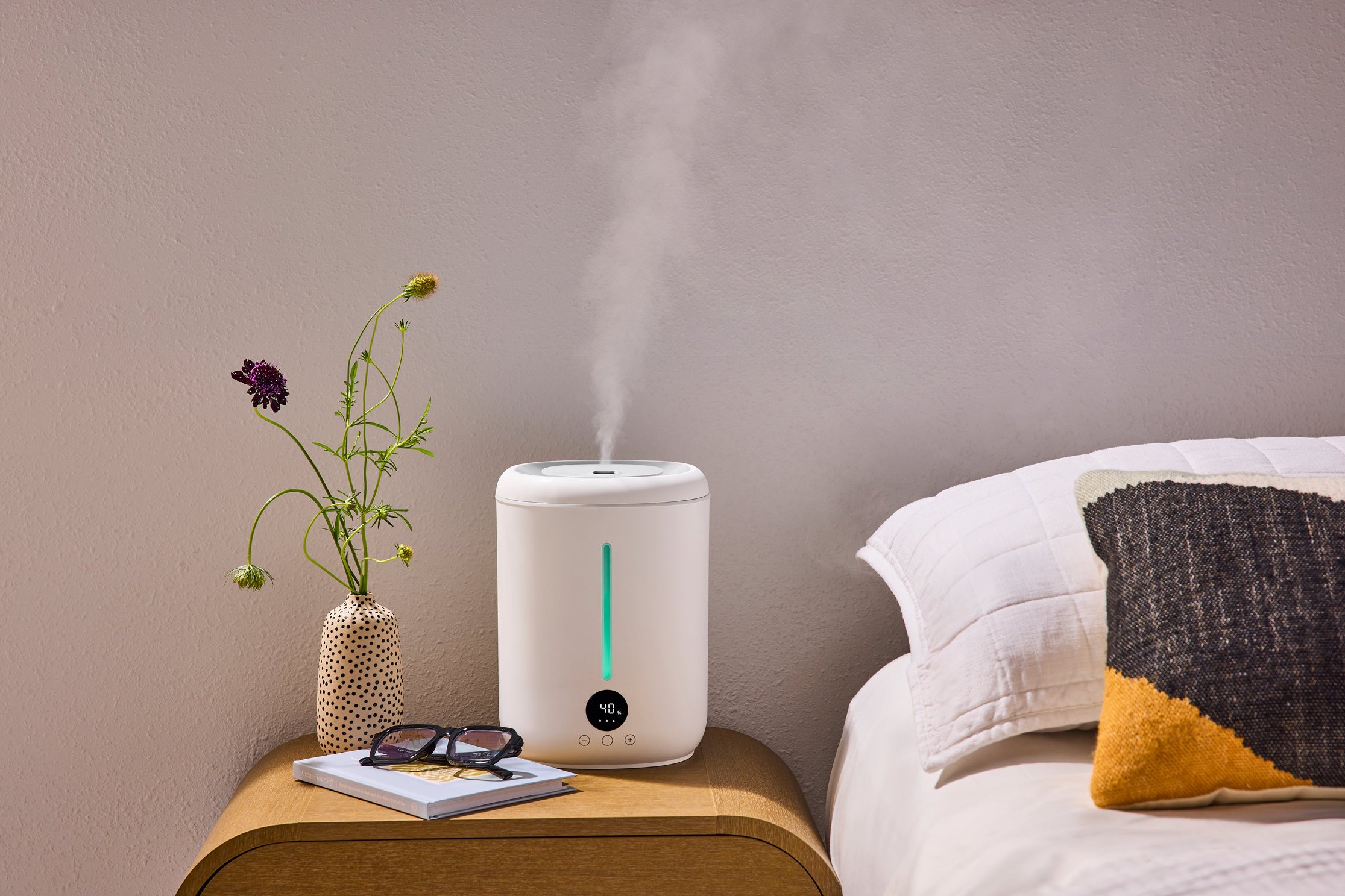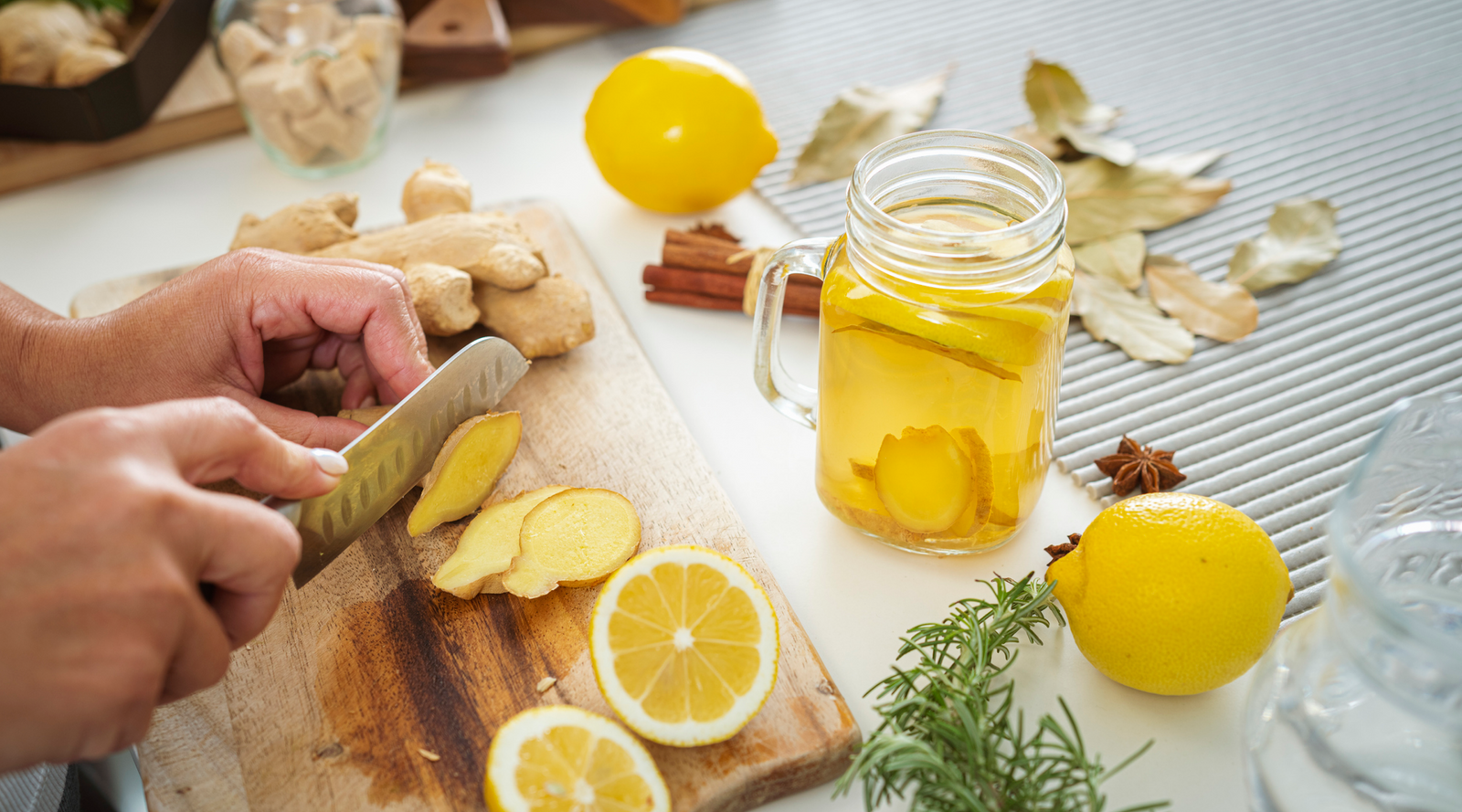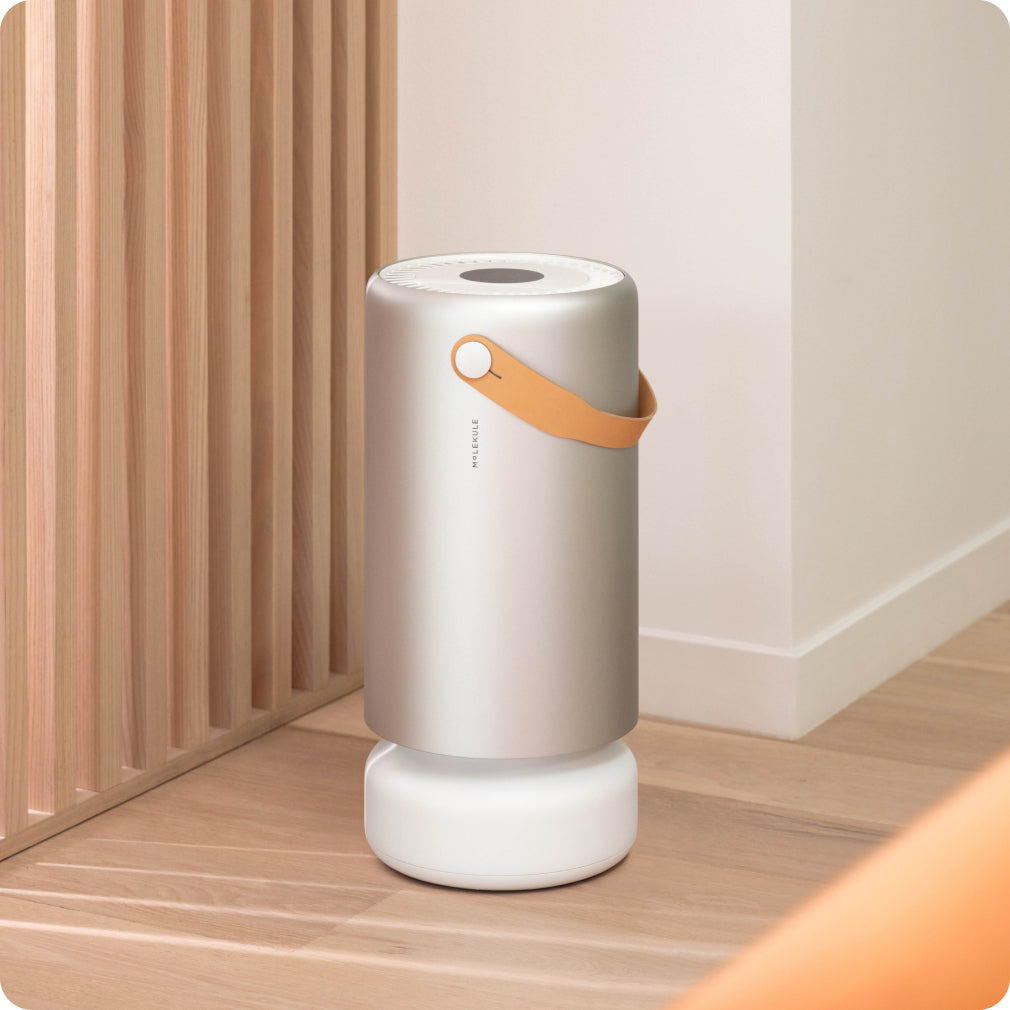Natural remedies for seasonal allergies offer effective alternatives to traditional medications for millions of people who want to combat pollen-triggered symptoms without relying solely on pharmaceuticals. These evidence-based approaches include dietary supplements like quercetin and stinging nettle; lifestyle modifications such as nasal irrigation, stress management, and the use of air purifiers; and environmental controls that reduce allergen exposure.
By combining multiple natural strategies, you can significantly reduce your sneezing, runny nose, itchy eyes, and congestion while supporting your body's natural healing capacity throughout allergy season.
Key Takeaways
-
Natural antihistamines like quercetin, stinging nettle, and vitamin C can effectively reduce seasonal allergy symptoms.
-
Nasal irrigation with saline solutions provides immediate relief from congestion and removes allergens.
-
Dietary modifications including probiotics and anti-inflammatory foods support immune system balance.
-
Environmental controls, particularly advanced air purification, dramatically reduce indoor allergen exposure.
-
Combining multiple natural approaches often provides better results than single interventions.
Understanding Natural Remedies for Seasonal Allergies
Natural remedies for seasonal allergies work by supporting your immune system's ability to handle allergen exposure without overreacting. Unlike conventional medications that often suppress symptoms after they occur, natural approaches focus on prevention and addressing root causes of allergic responses.
An allergy occurs when the immune system reacts to an allergen as if it were a dangerous bacteria or virus. During an allergic response, the body immediately begins producing immunoglobulin E antibodies, or IgE, which trigger the release of histamine and other inflammatory compounds.
Natural remedies work through several mechanisms to provide relief:
-
Support balanced immune responses
-
Reduce excessive IgE production
-
Enhance regulatory immune cell function
-
Improve gut microbiome diversity
-
Reduce tissue inflammation in nasal passages
-
Decrease histamine release from mast cells
-
Support natural antioxidant systems
-
Lower overall inflammatory burden
-
Clear nasal passages of allergens and mucus
-
Soothe irritated tissues
-
Improve breathing and comfort
-
Reduce eye and throat irritation
For comprehensive allergy management, environmental controls play a crucial role. Home air purifiers can significantly reduce indoor allergen exposure, creating clean air sanctuaries that support your body's natural healing processes.
Furthermore, understanding the differences between an air purifier vs humidifier can help you make informed decisions about which environmental controls make the most sense for your unique needs.
Science-Backed Natural Antihistamines
Several natural compounds have demonstrated antihistamine properties in clinical studies, offering alternatives to conventional allergy medications with fewer side effects.
1. Quercetin: The Natural Allergy Fighter
Quercetin is an anti-inflammatory bioflavonoid found in various fruits and vegetables that regulates histamine production and release. This powerful antioxidant gives plants their pigmentation and provides significant benefits for allergy sufferers.
Scientific Evidence
-
In clinical trials, quercetin has been shown to reduce airway irritation with allergies.
-
Researchers found that quercetin was effective in blocking anaphylaxis to peanuts in animal studies.
Food Sources
-
Apples and berries
-
Onions and garlic
-
Red grapes and cherries
-
Citrus fruits
-
Green leafy vegetables
-
Honey (especially raw, local varieties)
Supplementation Guidelines: Building sufficient doses of quercetin takes time, so start implementing quercetin-rich foods into your diet or taking a quercetin supplement for weeks or even months ahead of allergy season for best results. Because quercetin is poorly absorbed on its own, look for supplements combined with vitamin C, bromelain, or other bioflavonoids to enhance absorption.
2. Stinging Nettle: Traditional Wisdom Meets Modern Science
Stinging nettle (Urtica dioica) has been used medicinally for centuries and acts as a natural antihistamine by blocking the body's ability to produce histamine. Research has specifically shown that stinging nettle leaf naturally controls histamines, which is why a growing number of doctors recommend taking a freeze-dried preparation before hay fever season begins.
Clinical Research
-
A randomized, double-blind, placebo controlled clinical trial showed certain positive effects of nettle in managing allergic rhinitis symptoms.
-
Several compounds in nettle extract have been shown to work against seasonal allergies by fighting inflammation.
Usage and Dosage
-
General guidelines suggest 2 to 4 cups of stinging nettle tea per day.
-
Capsules and tablets usually come in 300 to 500 mg dosage, taken several times daily.
-
Stinging nettle can be used as teas, capsules, tinctures, or topically as creams.
-
Stinging nettle is most effective when started before allergy season begins.
Unlike many over-the-counter antihistamines, the phytoconstituents of nettle extract do not cross the blood-brain-barrier, avoiding drowsiness and cognitive effects.
For optimal results, natural antihistamines work best when combined with environmental controls. Compact air purifiers for bedrooms can remove airborne allergens while your body processes these natural supplements.
3. Vitamin C: Immune System Support
Vitamin C acts as a natural antihistamine and supports overall immune system function.
Benefits for Allergies
-
Reduces histamine levels in the blood
-
Supports immune system balance
-
Acts as a powerful antioxidant
-
Enhances absorption of other natural remedies like quercetin
How to Get More Vitamin C
-
Consume vitamin C-rich foods like citrus fruits, berries, and cantaloupe.
-
Add fresh-squeezed lemon juice to morning water.
-
Consider supplementation during peak allergy seasons.
-
Combine vitamin C with other natural antihistamines for enhanced effects.
Understanding science-backed natural remedies for congestion can help you create a comprehensive natural approach to seasonal allergy management.

Herbal Remedies and Traditional Medicine
Traditional medicine systems have long recognized the value of herbal remedies for allergic conditions. Modern research has validated many of these approaches, providing scientific backing for time-tested treatments.
1. Butterbur: Clinical Evidence for Allergy Relief
Butterbur is a marsh plant that's part of the daisy family with demonstrated effectiveness for allergic rhinitis. A 2023 study found that butterbur was a safe and effective natural treatment option for people with seasonal allergic rhinitis.
Research Findings
-
Clinical trials have shown butterbur to be as effective as some conventional antihistamines
-
Provides relief from nasal congestion, sneezing, and eye irritation
Important Safety Considerations
-
Butterbur can cause allergic reactions in those sensitive to ragweed, chrysanthemums, marigolds, and daisies.
-
Raw butterbur extracts contain alkaloids that can cause liver damage.
-
Only use processed extracts that have removed potentially harmful compounds.
-
Consult healthcare providers before use, especially for long-term treatment.
2. Bromelain: Enzyme Support for Respiratory Health
Bromelain is a compound most commonly found in pineapples that's known to be effective at treating respiratory distress and inflammation associated with allergies. A 2023 analysis found that bromelain may be effective against sinusitis, a type of inflammation of the nasal passage caused by allergies.
Mechanisms of Action
-
Uses enzymatic activity to break down protein complexes
-
May include antigenic compounds triggering immune responses
-
Enhances the absorption of quercetin when taken together
-
Reduces allergic sensitization and prevents the development of allergic airway disease
Best Sources
-
Fresh pineapple (experts recommend getting bromelain by eating pineapple rather than supplements)
-
Available in supplement form for therapeutic doses
-
Often combined with quercetin for enhanced effectiveness
3. Spirulina: Algae-Based Allergy Relief
Spirulina is a type of algae that people can take in supplement or powder form, with some studies pointing to its antihistamine effects. A 2020 study comparing spirulina with the medical antihistamine cetirizine in 53 patients with allergic rhinitis found that spirulina was more effective in improving allergic symptoms.
Research Insights
-
Showed superior results compared to conventional antihistamines in direct comparison
-
Requires high doses of around 2 grams in four daily doses for effectiveness
-
May also help alleviate food allergies, though more research is needed
For individuals managing multiple environmental sensitivities, creating clean indoor air becomes essential. Air purifiers for VOCs can remove chemical irritants that may compound your seasonal allergy symptoms.
Lifestyle Modifications for Natural Allergy Relief
Effective natural allergy management extends beyond supplements to include fundamental lifestyle changes that support immune system health and reduce allergen exposure.
1. Nasal Irrigation: Immediate Symptom Relief
There is reasonably good evidence that nasal irrigation with saline can be useful for relief of seasonal allergy symptoms. This simple technique provides immediate benefits by physically removing allergens and reducing inflammation.
Types of Nasal Irrigation
-
Neti pots with saline solutions
-
Saline nasal sprays
-
Ready-to-use irrigation kits
-
Nasal saline douches for washing out the nose
Proper Technique
-
Use distilled or sterile water only (tap water can aggravate sinuses).
-
Mix with appropriate salt ratios.
-
Tilt head sideways and allow solution to flow through nasal passages.
-
Use regularly during high pollen periods.
Clinical Benefits
-
Clears nasal passages of allergens and irritants
-
Reduces congestion and mucus production
-
Improves quality of life in respiratory illness sufferers
-
Causes little to no side effects when used properly
2. Hydration and Mucus Management
Staying properly hydrated plays a crucial role in natural allergy management. When dehydrated, your body produces more histamines, which can worsen allergy symptoms.
Hydration Benefits
-
Helps thin mucus secretions for easier clearing
-
Supports optimal immune system function
-
Reduces histamine production
-
Improves overall respiratory comfort
How to Stay Hydrated
-
Drink at least one-third of your body weight in ounces of water daily.
-
Choose foods with higher water content, like berries, cucumbers, and broths.
-
Avoid excessive caffeine and alcohol, which can dehydrate.
-
Monitor urine color as a hydration indicator.
Getting adequate hydration during warmer spring and summer weather can help loosen mucus and thin it out so it moves easily, providing natural relief from congestion.
3. Stress Management: The Mind-Body Connection
Stress significantly impacts immune system function, and stress can worsen allergic reactions. Increased stress promotes allergic disease, making stress management an essential component of natural allergy relief.
Stress Reduction Techniques
-
Regular meditation and mindfulness practices
-
Gentle exercise like walking, yoga, or tai chi
-
Deep breathing exercises and progressive muscle relaxation
-
Adequate sleep and consistent sleep schedules
-
Social support and stress-sharing strategies
Scientific Support
-
A 2025 review suggests that treating allergic rhinitis with acupuncture has few side effects and good short- and long-term effects.
-
Stress reduction helps lower cortisol levels, which can improve immune system balance.
-
Mind-body practices support overall resilience during allergy seasons.
Creating stress-free environments extends to your living spaces. Air purifiers for sleep can improve nighttime air quality, supporting better rest and stress recovery.
Dietary Approaches and Gut Health
The connection between gut health and immune system function makes dietary approaches particularly effective for managing seasonal allergies naturally. More than 70% of your immune system resides in your gut, making nutrition a cornerstone of natural allergy management.
1. Probiotics: Immune System Balance
Research shows that probiotics can help treat hay fever (allergic rhinitis) by supporting healthy gut flora and immune system balance. There is some limited evidence that suggests probiotics may improve some symptoms, as well as quality of life, in patients with allergic rhinitis.
Mechanisms of Action
-
Support diverse, healthy gut microbiome
-
Enhance regulatory immune cell function
-
Reduce inflammatory responses
-
Improve overall immune system balance
Best Sources
-
Yogurt with live active cultures
-
Fermented foods like sauerkraut, kimchi, and kombucha
-
Kefir and other cultured dairy products
-
High-quality probiotic supplements
Research Findings
-
2022 research in humans and animals indicates probiotics may help reduce allergy symptoms.
-
Research from 2024 suggests probiotics may help regulate immune system and alleviate food allergies.
2. Anti-Inflammatory Foods
Choosing clean, organic food can reduce toxin exposures that alter immune system function. Common food sensitivities to gluten, dairy, and sugar can lead to immune system dysregulation, potentially worsening seasonal allergies.
Foods to Emphasize
-
Organic fruits and vegetables high in antioxidants
-
Omega-3 rich fish and flax seeds
-
Anti-inflammatory spices like turmeric and ginger
-
Quercetin-rich foods like onions, apples, and berries
-
Local, raw honey for potential desensitization
Foods to Limit
-
Processed foods with artificial additives
-
Excessive sugar and refined carbohydrates
-
Common allergens that may cross-react with pollen
-
Foods grown with heavy pesticide use
Elimination Diet Benefits: An elimination diet may be helpful in identifying if certain foods cause inflammation, leading to a "leaky gut" that worsens seasonal allergy symptoms. There can even be connections between specific foods and grass or pollen allergies.
Understanding hypoallergenic pets for people with allergies can help you make informed decisions about pet ownership while managing seasonal sensitivities.
3. Local Honey: Traditional Remedy with Modern Interest
Taking a tablespoon of local, raw honey every day helps your body build a tolerance to the local pollen that may be affecting your sinuses. While research on honey for allergies is mixed, some studies show promising results.
Research Evidence
-
Researchers in a study published in International Archives of Allergy and Immunology found patients taking honey reported 60% lower total symptom scores.
-
Participants had twice as many asymptomatic days and 70% fewer days with severe symptoms.
-
They used 50% less antihistamines compared to the control group.
How to Take Raw Honey
-
Use raw, unprocessed honey from local sources.
-
Take one tablespoon daily during allergy season.
-
Add to tea, oatmeal, or smoothies.
-
Start several weeks before peak pollen season.
Important Considerations
-
Not all studies show consistent benefits.
-
Most pollen in honey comes from flowers, not grasses or trees.
-
Individual responses vary significantly.
-
This strategy should complement, not replace, other natural approaches.
For comprehensive seasonal preparation, consider how air purifiers for mold can address year-round indoor air quality issues that may compound your seasonal sensitivities. Additionally, learning how to make your room smell fresh can help you maintain a pleasant, allergen-free indoor environment any time of the year.
Frequently Asked Questions
How long does it take for natural remedies for seasonal allergies to work?
Natural remedies typically take 2-6 weeks to show full effects, unlike medications that work immediately. Quercetin and stinging nettle work best when started 4-6 weeks before allergy season. Some approaches like nasal irrigation provide immediate relief, while immune-supporting strategies like probiotics may take several months to optimize gut health and immune function.
Can I use natural remedies for seasonal allergies if I'm already taking allergy medications?
Many natural remedies can complement conventional treatments, but always consult your healthcare provider first. Some combinations may enhance effectiveness or allow gradual reduction of medications, while others might cause interactions. Never stop prescription medications abruptly without medical supervision.
Which natural antihistamines are most effective for seasonal allergies?
Research shows quercetin, stinging nettle, and vitamin C have the strongest evidence for natural antihistamine effects. Quercetin appears most effective when combined with bromelain or vitamin C for enhanced absorption. Stinging nettle has shown particular promise for hay fever symptoms, while vitamin C supports overall immune function.
Are there any natural remedies for seasonal allergies that work immediately?
Nasal irrigation with saline provides immediate relief by physically removing allergens and reducing congestion. Cold compresses can quickly soothe itchy eyes, while warm steam from showers helps clear nasal passages. However, most natural approaches work best as preventive measures rather than acute treatments.
How do I know if natural remedies for seasonal allergies are working?
Keep a detailed symptom diary tracking sneezing, congestion, eye irritation, and overall comfort levels. Many people notice improved sleep quality, reduced morning symptoms, and better tolerance to outdoor activities. Some benefits may be subtle initially, gradually building to more significant improvements over time.
Can environmental controls really replace the need for allergy medications?
Advanced air purification combined with allergen avoidance can dramatically reduce symptom severity for many people. While complete medication elimination isn't possible for everyone, effective environmental controls often allow significant reduction in pharmaceutical dependence when combined with other natural approaches.







